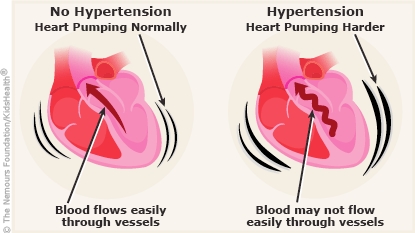Find a Provider
From well-child visits to specialized treatment of complex illnesses and injuries, we offer comprehensive care from an exceptional team of doctors, nurses and allied professionals.
- Parents Home
- Para Padres
- A to Z Dictionary
- Allergy Center
- Asthma
- Cancer
- Diabetes
- Diseases & Conditions
- Doctors & Hospitals
- Emotions & Behavior
- First Aid & Safety
- Flu (Influenza)
- Food Allergies
- General Health
- Growth & Development
- Heart Health & Conditions
- Homework Help Center
- Infections
- Newborn Care
- Nutrition & Fitness
- Play & Learn
- Pregnancy Center
- Preventing Premature Birth
- Q&A
- School & Family Life
- Sports Medicine
- Teens Home
- Para Adolescentes
- Asthma
- Be Your Best Self
- Body & Skin Care
- Cancer
- Diabetes
- Diseases & Conditions
- Drugs & Alcohol
- Flu (Influenza)
- Homework Help
- Infections
- Managing Your Weight
- Medical Care 101
- Mental Health
- Nutrition & Fitness
- Q&A
- Safety & First Aid
- School, Jobs, & Friends
- Sexual Health
- Sports Medicine
- Stress & Coping
Hypertension (High Blood Pressure)
What Is High Blood Pressure?
High blood pressure, or hypertension, is when the force of the blood pushing on the blood vessel walls is too high. When someone has high blood pressure:
- The heart has to pump harder.
- The arteries (blood vessels that carry the blood away from the heart) are under greater strain as they carry blood.

After a while, high blood pressure can damage the heart, brain, kidneys, and eyes. Finding and treating high blood pressure early can help people stay healthy, now and in the future..
How Does Blood Pressure Work?
Blood pressure is the force against blood vessel walls as the heart pumps blood. When the heart squeezes and pushes blood into the vessels, blood pressure goes up. It comes down when the heart relaxes.
Blood pressure changes from minute to minute. It's affected by activity and rest, body temperature, diet, emotions, posture, and medicines.
What Causes High Blood Pressure?
The most common type of high blood pressure is called primary hypertension. This means that no other medical problem is found that is causing the high blood pressure. Primary hypertension is more common in people who are overweight or obese, and those who have high blood pressure in their family.
When a medical problem is found that is causing high blood pressure, it is called secondary hypertension.
Secondary hypertension often is due to:
- kidney disease
- hormone problems
- blood vessel problems
- lung problems
- heart problems
- some medicines
What Are the Signs & Symptoms of High Blood Pressure?
Most of the time high blood pressure doesn't cause symptoms. In rare cases, severe high blood pressure can cause headaches, blurry vision, dizziness, nosebleeds, a fluttering or racing heartbeat, and nausea.
If you have high blood pressure and any of these symptoms, get medical care right away.
How Is Blood Pressure Measured?
Health care providers measure blood pressure with a cuff that wraps around the upper arm. When the cuff inflates, it squeezes a large artery, stopping the blood flow for a moment. Blood pressure is measured as air is slowly let out of the cuff, which lets blood flow through the artery again.
Blood pressure is measured in two numbers:
- The pressure when the heart pumps.
- The pressure when the heart rests between beats.
You hear blood pressure reported as the first number "over" the second number, like 120 over 80 or 120/80.
How Is High Blood Pressure Diagnosed?
A single reading showing high blood pressure doesn't mean that you have hypertension. Sometimes, blood pressure needs to be checked several times over a period of days or weeks to know if someone has hypertension. Your doctor will probably weigh and measure you. He or she might do urine tests or blood tests to check for other conditions that can cause hypertension.
Some people have what's called "white coat hypertension." This means that their blood pressure goes up when they're at a doctor's office because they're nervous. When they feel more relaxed, their blood pressure usually goes down. To make sure high blood pressure readings aren't caused by anxiety, doctors will sometimes track a person's blood pressure over a whole day. This is called ambulatory blood pressure monitoring.
How Is High Blood Pressure Treated?
If high blood pressure is due to a condition like kidney disease or a hormone problem, treating the condition might be enough to get the blood pressure back to normal.
Doctors often recommend lifestyle changes. If you have hypertension, your doctor might want you to:
Eat a healthy diet:
- Eat more fruits, vegetables, and low-fat dairy.
- Limit salt.
- Avoid caffeine (found in sodas, tea, coffee, and energy drinks).
- Avoid alcohol.
Get regular exercise:
- Try to exercise for 30–60 minutes at least 3–5 times a week. Teens with severe hypertension should check with the doctor to see which sports and activities are safe. Some — like weightlifting or power-lifting, bodybuilding, or strength training — might not be allowed until their blood pressure is better controlled.
Not smoke. Or if you do smoke, quit:
- People with high blood pressure should not smoke, and their home and car should be smoke-free.
If diet and exercise changes do not improve the blood pressure, doctors may prescribe medicine.
What Else Should I Know?
It's important to follow the advice of your care team. A healthy diet and exercise, taking medicine if needed, and getting regular blood pressure checks can help you stay healthy.

© 1995- The Nemours Foundation. KidsHealth® is a registered trademark of The Nemours Foundation. All rights reserved.
Images sourced by The Nemours Foundation and Getty Images.


